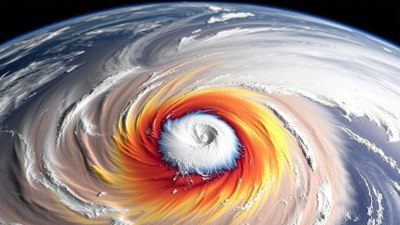Why the Best Philosophical Conversations Happen During Long Walks in Changing Weather
Discover how changing weather and long walks inspire profound philosophical conversations.

Philosophical conversations often emerge from the most unlikely circumstances, yet few experiences foster these dialogues as effectively as long walks in changing weather. This intriguing phenomenon can be attributed to a blend of environmental factors, physical movement, and the psychological effects of nature. In this article, we will explore the deeper reasons why these settings seem to unlock our capacity for contemplation and meaningful discussion, weaving through the intersection of nature, philosophy, and human connection.
The Connection Between Movement and Thought
Movement has been synonymous with thought throughout history. Philosophers such as Nietzsche and Thoreau championed walking as a means to stimulate the mind, while contemporary studies support this connection. The act of walking stimulates blood flow and enhances cognitive function. When our bodies are engaged in physical activity, our brains often enter a state conducive to creativity and expansive thinking.
Psychologically, the rhythm of walking allows for a meditative state. As our feet strike the ground, they create a steady beat that can mirror our thought processes. This healthy balance of physical exertion and reflective thought helps us access deeper layers of understanding. The combination of walking and thinking serves as a catalyst, igniting our ability to contemplate complex ideas and dilemmas.
The Role of Nature in Conversation
Nature has a profound ability to influence our mental state, often providing the backdrop for introspection and discourse. Various studies have demonstrated that spending time in nature can lead to improved mood and decreased anxiety. When we find ourselves surrounded by the beauty of the natural world—whether it's the rustle of leaves, the chirping of birds, or the sight of changing weather patterns—our senses become heightened, making us more receptive to philosophical dialogue.
Changing weather adds an additional layer to these experiences. The unpredictability of a passing storm or the gentle warmth of sunlight can shift our emotional landscape, provoking thoughts and prompting discussions we might not otherwise engage in. Each variation in weather can serve as a metaphor for life’s complexities, leading us to explore deeper topics about existence, purpose, and the human condition.
Weather as a Metaphor
Many philosophical conversations naturally gravitate towards metaphorical explanations of life’s challenges and mysteries. Weather serves as an ideal metaphor—it is unpredictable, fluctuating between tranquility and turmoil. For instance, a gentle rain can symbolize cleansing or renewal, while a thunderstorm may evoke thoughts of chaos and the unknown.
The ability to observe and reflect on these metaphors during a walk can strengthen our discussions. When the weather changes, it acts as a tangible representation of our inner thoughts and feelings. By allowing the external environment to reflect our internal state, we can engage more profoundly in conversations that explore the essence of our experiences alongside nature’s unfolding drama.
Social Connection Through Shared Experience
Long walks provide an intimate setting for conversations. The shared experience of walking, combined with interacting with the natural world, fosters a sense of connection between discussion partners. These moments become shared memories, embedding the dialogue within the context of the environment that surrounded it.
The casual pace of walking allows for spontaneous dialogue rather than structured debate. This lack of pressure transforms conversations into more organic exchanges, where ideas can evolve and shift as naturally as the landscape around us. Such an atmosphere cultivates vulnerability and openness, making it easier to explore profound topics that might feel daunting in other settings.
The Influence of Solitude and Remoteness
Walking in nature often provides a degree of solitude that can shift the dynamics of a conversation. With fewer disracting elements than one finds in more urban settings, the focus can remain on the philosophical questions at hand. Moreover, remoteness can enhance the experience by allowing freedom from societal norms and expectations, creating a space where individuals can express themselves candidly.
When you abandon the constraints of a busy environment, you relinquish the mental clutter that can inhibit deep thinking. In solitude, you can delve into personal beliefs and reflections without the risk of judgement, allowing for richer and more authentic conversations.
Spontaneity of Thought
The fluid nature of both walking and changing weather contributes to the spontaneity of thoughts and ideas. A sudden shift in the weather can evoke thoughts related to transcendence and transformation, connecting them to societal changes or personal evolution. The dialogue can meander like the trail underfoot, wandering from topic to topic with ease.
A well-timed gust of wind may inspire a reflection on change; the sudden burst of sunlight could prompt considerations of optimism and hope. These spontaneous moments can serve as the origination point for profound insights or revelations about the nature of life, love, and existence itself.
Encounters and Serendipity
While on a long walk, it’s also possible to encounter other individuals or groups, sparking unexpected dialogues. These chance encounters introduce the possibility of sharing differing perspectives or introducing fresh ideas into established conversations. Serendipity plays a crucial role in philosophical discussions, as unexpected interactions can catalyze insights long thought about but never articulated.
Moreover, unplanned events lead to a collective experience that can deepen the conversation. A brief discussion with a stranger about a shared viewpoint can act as an unexpected thread that braids itself into the ongoing dialogue, expanding its depth and breadth.
Reflections on Mortality and Life Lessons
The contemplative nature of walking in nature, particularly through varying weather, often leads to reflections on mortality and life’s greater questions. As we meander pathways, our thoughts frequently drift to the impermanence of existence—the clouds eventually clear, the rain will stop, and the sun will shine again. Walking can invite us to consider our own fears, hopes, and desires while embracing the transient quality of life.
Discussions about mortality can foster empathy and connection between conversation partners. Shared fears or hopes regarding life and death can bridge gaps, leading to a deeper understanding of one another's perspectives. These discussions create spaces for vulnerability, mutual respect, and profound insights that stem from genuine human connection.
Creating Memorable Experiences
Long walks in changing weather often culminate in memorable philosophical experiences. The combination of environmental context and meaningful dialogue intertwines to create lasting memories that both individuals carry forward. Each time one revisits that particular trail or weather pattern, the associated reflections and conversations can be invoked, reinvigorating the original discussion while prompting new thoughts and contemplations.
Thus, the next time you find yourself engaged in a philosophical discussion during a long walk amidst changing weather, embrace the journey. Recognize the unique opportunity provided by the combination of nature, movement, and emotional ebb and flow—woven together, they create fertile ground for deep and thoughtful conversations.
In conclusion, the intertwining of long walks, changing weather, and philosophical discussions is both natural and significant. These elements foster the perfect environment for introspection, creativity, and open dialogue. From the connection between movement and thought to serendipitous encounters with the world around us, each variable contributes to the rich tapestry that is human conversation.
As we navigate our world—both physically and philosophically—let us embrace the power of nature and movement in our quest for understanding. Next time a moment arises for a walk, whether alone or with a companion, cherish the opportunity to explore the deeper questions of existence amidst the beauty of a changing landscape.











